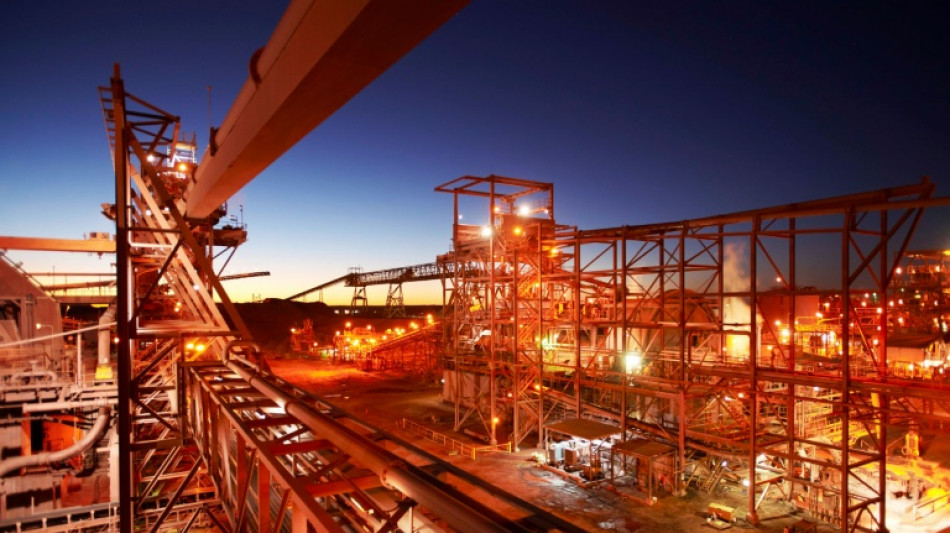
-
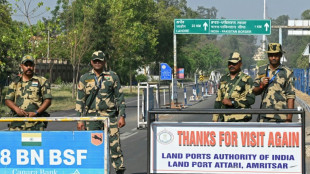 Kashmiri students say they have been threatened in India after attack
Kashmiri students say they have been threatened in India after attack
-
Ugandans kill migrating storks in desperation for food

-
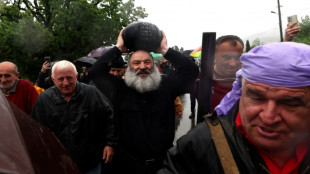 Georgia's rugby dreams built on wild folk game
Georgia's rugby dreams built on wild folk game
-
'Massive' Russian missile attack kills nine in Kyiv
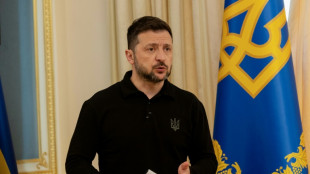
-
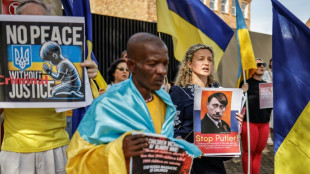 S.Africa welcomes Ukraine's leader in diplomatic shift
S.Africa welcomes Ukraine's leader in diplomatic shift
-
'We'll see': Russians outside Moscow have little faith in Trump
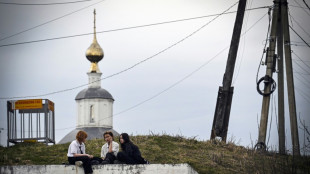
-
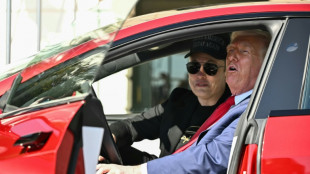 Tesla's EU sales plunge as Musk takes flak
Tesla's EU sales plunge as Musk takes flak
-
Chinese Catholics mourn Pope Francis, mull Church's future
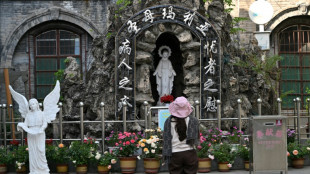
-
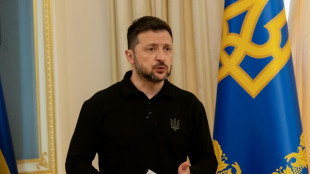 Russian missile attack kills nine in Kyiv
Russian missile attack kills nine in Kyiv
-
Tatum-less Celtics take hard-fought victory as Cavs, Rockets win

-
 Tigres fight back for draw with Cruz Azul in CONCACAF semi
Tigres fight back for draw with Cruz Azul in CONCACAF semi
-
Asian markets mixed as Trump soothes Fed fears
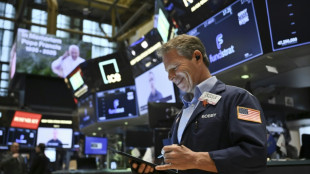
-
 Inter return to tough Scudetto defence after treble dream dies
Inter return to tough Scudetto defence after treble dream dies
-
Asian markets mostly up as Trump soothes Fed fears
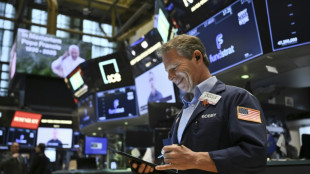
-
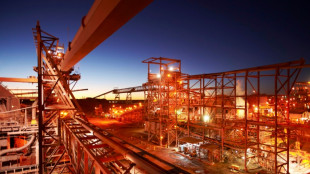 Australia to stockpile critical minerals in strategic reserve
Australia to stockpile critical minerals in strategic reserve
-
Former S. Korea president Moon Jae-in indicted for corruption: prosecution
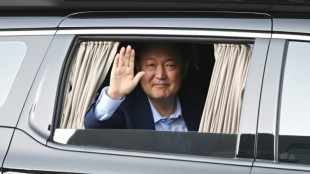
-
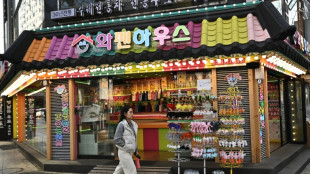 S. Korea's economy shrinks in first quarter as trade war hits exports
S. Korea's economy shrinks in first quarter as trade war hits exports
-
Tanzania opposition leader due in court on treason charge
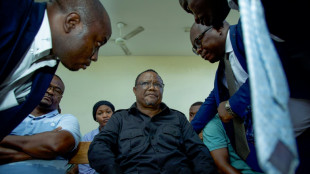
-
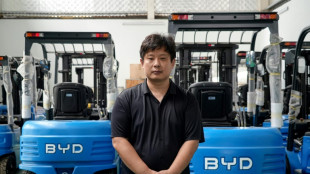 Chinese business in Vietnam struggles with Trump tariffs uncertainty
Chinese business in Vietnam struggles with Trump tariffs uncertainty
-
EU top diplomat Kallas seeks footing as Trump upends West
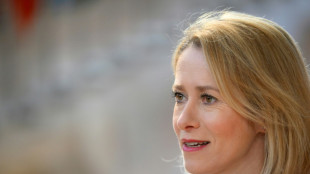
-
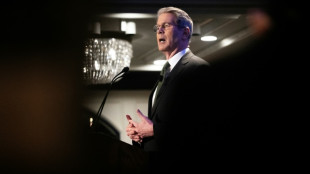 Bessent says 'no currency targets' in Japan tariff talks
Bessent says 'no currency targets' in Japan tariff talks
-
Yemen's Huthis seek propaganda boost from deadly US strikes
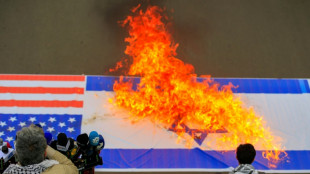
-
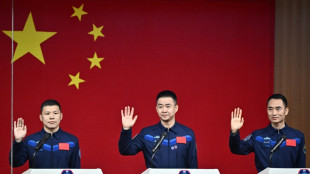 Chinese astronauts set to blast off for space station
Chinese astronauts set to blast off for space station
-
Tatum-less Celtics win to join Cavs with 2-0 NBA playoff edge

-
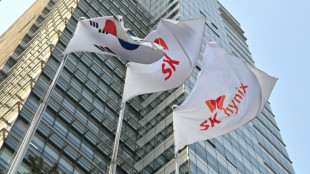 SK hynix posts record profits thanks to strong AI demand
SK hynix posts record profits thanks to strong AI demand
-
UK hosts global energy summit with renewables under attack
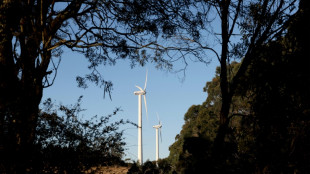
-
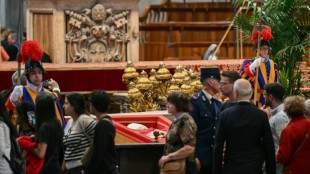 Huge crowds expected for second day of pope lying in state
Huge crowds expected for second day of pope lying in state
-
Nintendo bullish on Switch 2 pre-sales in Japan

-
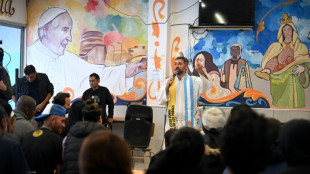 Argentina 'slum priests' take pope's message to the poor
Argentina 'slum priests' take pope's message to the poor
-
Russia launches Kyiv missile attack, hours after Trump blames Zelensky
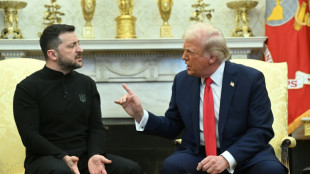
-
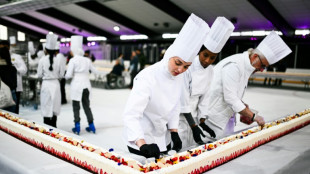 121 metre long cake gives a taste for records
121 metre long cake gives a taste for records
-
Oasis fans lose 'over £2 million' in UK ticket scams
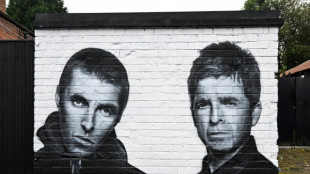
-
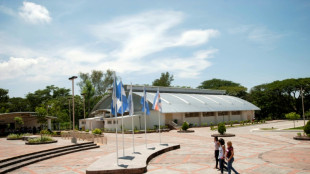 Trump kills US agency funding Africa infrastructure
Trump kills US agency funding Africa infrastructure
-
Wallabies centre Ikitau signs on for Exeter stint
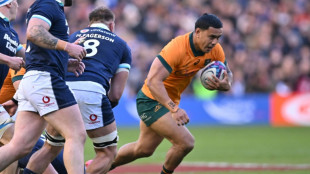
-
 12 US states sue over Trump's tariffs
12 US states sue over Trump's tariffs
-
Titans eye QB Ward with top pick in NFL Draft
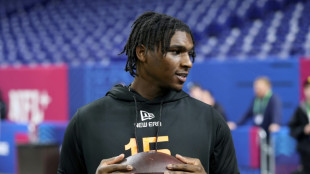
-
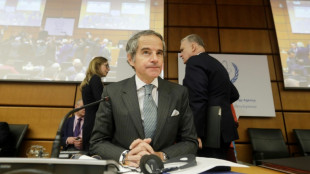 UN watchdog asks Iran to clarify tunnels but upbeat on deal
UN watchdog asks Iran to clarify tunnels but upbeat on deal
-
Arsenal lacked 'energy' in Palace draw as Liverpool prepare to seal title

-
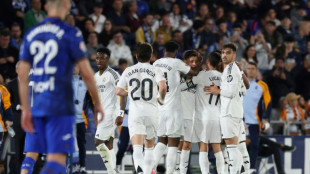 Real Madrid win at Getafe to keep La Liga title hopes alive
Real Madrid win at Getafe to keep La Liga title hopes alive
-
Santana postpones tour dates over Covid-19 illness

-
 YouTube says more than 20 billion videos uploaded in 20 years
YouTube says more than 20 billion videos uploaded in 20 years
-
Trump seeks 'fair deal' with China but pathway unclear
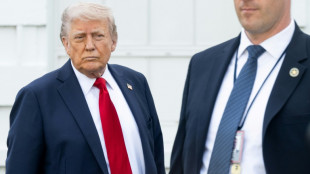
-
 Liverpool on brink of title after Arsenal held by Palace
Liverpool on brink of title after Arsenal held by Palace
-
Jovic shoots AC Milan into Italian Cup final with derby double

-
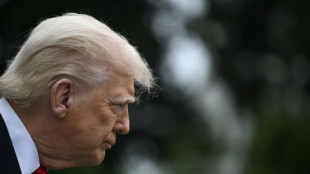 Trump's popularity with US voters slumps in opinion polls
Trump's popularity with US voters slumps in opinion polls
-
Former USA boss Arena suggests Pochettino doesn't 'understand' role
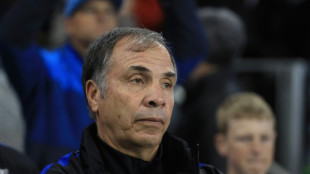
-
 Bilbao edge Las Palmas to close on Champions League qualification
Bilbao edge Las Palmas to close on Champions League qualification
-
India targets Pakistan with diplomatic moves after Kashmir attack
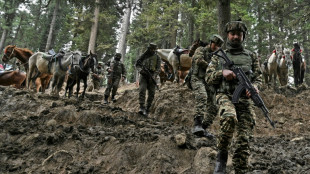
-
 Crowds bid farewell to Pope Francis in first day of lying in state
Crowds bid farewell to Pope Francis in first day of lying in state
-
Swiatek hardened by going 'through the worst' after doping ban


Australia to stockpile critical minerals in strategic reserve
Australia will stockpile critical minerals in a new strategic reserve, Prime Minister Anthony Albanese said Thursday, as nations scramble to source rare earths and coveted metals outside China.
Mining superpower Australia sits on bulging deposits of lithium, nickel and cobalt -- metals used in everything from smartphones to electric vehicles.
But most of this boon is sold as raw ore to processing factories in China, which has a chokehold on the global supply of finished critical minerals.
Albanese said Australia would start stockpiling these commodities at home, striking deals to sell them to other "key partners".
"Increasingly uncertain times call for a new approach to make sure Australia maximises the strategic value of critical minerals," he said in a statement.
"We need to do more with the natural resources the world needs, and that Australia can provide."
Australia would initially set aside Aus$1.2 billion (US$760 million) to get the reserve up and running.
Albanese's government has previously suggested Australia could use its critical minerals as a bargaining chip in tariff talks with the United States.
Australia sits on some of the largest lithium deposits in the world, and is also a leading source of lesser-known rare earth metals such as neodymium.
Major manufacturing nations such as the United States, Germany and Japan are eager to obtain these critical minerals from sources other than China.
Japan has its own critical minerals stockpile, while the United States has been investing in metals refineries and other processing technology.
- Rare earth ransom -
"The ability for the government to stockpile is an important safeguard against market pressure, as well as interventions from other nations," Albanese said in a speech later on Thursday.
"It means Australia has the power to sell at the right time to the right partners for the right reasons."
Critical minerals loom as a likely new front in the unfolding trade war between Washington and Beijing.
US President Donald Trump last week ordered a probe that could result in new tariffs targeting China.
Trump's order stated that the United States was dependent on foreign sources of critical minerals, putting its military and energy infrastructure at risk.
China has shown a willingness to hold rare earths to ransom in the past.
At the height of a diplomatic dispute in 2010, China effectively banned the export of rare earths into Japan.
The move rattled Japan's car-making industry, which was heavily reliant on certain rare earth alloys to build magnets used in motors.
China controls some 90 percent of the world's supply of rare earths -- a subset of critical minerals -- and is fiercely protective of its position.
Beijing has banned the export of processing technology that could help rival nations, and has been accused of using state-imposed quotas to control supply.
N.Schaad--VB
